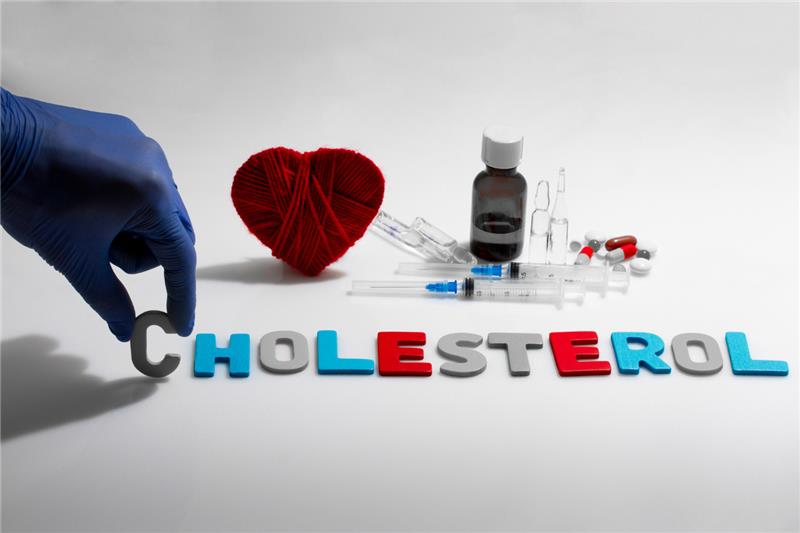
Hyperlipidemia, commonly known as high cholesterol, is a prevalent condition in the United States, affecting approximately 32.8% of adult males and 36.2% of adult females. This condition significantly increases the risk of cardiovascular diseases, including heart attacks and strokes. Primary care providers (PCPs) play a crucial role in the early detection, management, and prevention of hyperlipidemia, guiding patients toward healthier lifestyles and, when necessary, pharmacological treatments.
What Is Hyperlipidemia?
Hyperlipidemia refers to elevated levels of lipids—fats—in the blood, primarily cholesterol and triglycerides. Cholesterol is transported through the bloodstream by lipoproteins, mainly low-density lipoprotein (LDL) and high-density lipoprotein (HDL). LDL, often termed “bad cholesterol,” can accumulate in artery walls, leading to atherosclerosis, while HDL, or “good cholesterol,” helps remove excess cholesterol from the bloodstream.
Causes and Risk Factors
Hyperlipidemia can result from genetic predispositions, such as familial hypercholesterolemia, or lifestyle factors, including:
- Diet: High intake of saturated fats, trans fats, and cholesterol-rich foods.
- Physical Inactivity: Lack of regular exercise can lower HDL levels and raise LDL levels.
- Obesity: Excess body weight is associated with higher LDL and triglyceride levels.
- Other Health Conditions: Diseases like diabetes and hypothyroidism can contribute to elevated lipid levels.
Symptoms
Hyperlipidemia is often asymptomatic until significant cardiovascular issues arise. In some cases, individuals may develop physical signs such as xanthomas (yellowish deposits of cholesterol under the skin) or corneal arcus (a grayish-white ring around the cornea).
The Importance of Primary Care in Managing Hyperlipidemia
Primary care providers are instrumental in:
- Screening and Diagnosis: Regular lipid screenings are essential, especially for adults over 20, to detect hyperlipidemia early.
- Risk Assessment: PCPs evaluate individual risk factors, including family history and lifestyle, to determine the likelihood of cardiovascular events.
- Lifestyle Counseling: Guidance on diet, exercise, and weight management is provided to help patients achieve optimal lipid levels.
- Pharmacological Treatment: When lifestyle modifications are insufficient, medications such as statins may be prescribed to lower LDL cholesterol.
Treatment Options
- Lifestyle Modifications:
- Diet: Adopting a heart-healthy diet rich in fruits, vegetables, whole grains, and lean proteins while reducing saturated and trans fats.
- Exercise: Engaging in at least 30 minutes of moderate to vigorous aerobic activity most days can help raise HDL and lower LDL levels.
- Weight Management: Achieving and maintaining a healthy weight can improve lipid profiles.
- Medications:
- Statins: These drugs effectively lower LDL cholesterol and are commonly prescribed for hyperlipidemia management.
- Other Lipid-Lowering Agents: Depending on individual needs, other medications such as bile acid sequestrants or PCSK9 inhibitors may be considered.
Encouraging Professional Medical Advice
Given the silent nature of hyperlipidemia, regular check-ups with a primary care provider are vital. Early detection and personalized management plans can significantly reduce the risk of serious cardiovascular events. If you have concerns about your cholesterol levels or risk factors, consult your healthcare provider for appropriate screening and guidance.
In conclusion, hyperlipidemia is a significant health concern in the USA, but with proactive management and the support of primary care providers, individuals can take effective steps toward maintaining heart health and preventing complications.
Your Health, Our Priority
Your health is an ongoing journey, and regular check-ups are key to staying on top of it. At Healing Pulse Medical in Shelton, CT, we focus on providing personalized care tailored to your unique needs. Whether it’s a routine physical or addressing specific concerns, we’re here to support your well-being with flexible scheduling and walk-in options.
Take control of your health today—Healing Pulse Medical is your trusted partner in comprehensive primary care. Schedule your appointment now and let us help you navigate your health journey with confidence.